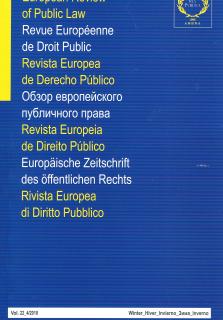
Administrative Law / Droit administratif
Serbia / Serbie
Throughout 2009 and 2010, Serbian administration continued with the transposition of the EU acquis in all required policy areas. As it was the case with the previous accession countries of the Central and Eastern Europe, this proved to be a challenging and complex task for administrative bodies. In order to demonstrate the difficulties facing the public administration, the author analyses the transposition and enforcement of environmental legislation, bearing in mind that the environment is identified as one of the most demanding areas for acquis transposition. This process involved extensive legislative activity and administrative reform, which were not equally successful. The intensive legislative activity in the aforementioned time period provided more valuable results which are examined in the case of the recently adopted Waste Management Act. Less successful and more controversial was the administrative reform, which showed that certain administrative bodies lack capacity for enforcement of legislation. By analysing the transposition of the environmental acquis, the author tried to identify common challenges and difficulties facing the Serbian administrative authorities in all policy areas. The most noticeable are the following: legal difficulties that entail a lack of understanding the EU legislation, especially in cases of results to be achieved by directives; the lack of expert terminology in the Serbian language; translation and proofreading of the environmental acquis; overlapping competences; absence of proper public debate; lack of statute impact assessment and the lack of administrative capacities.





















